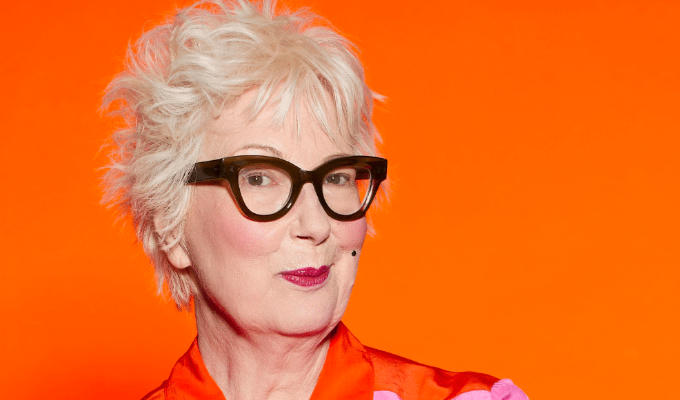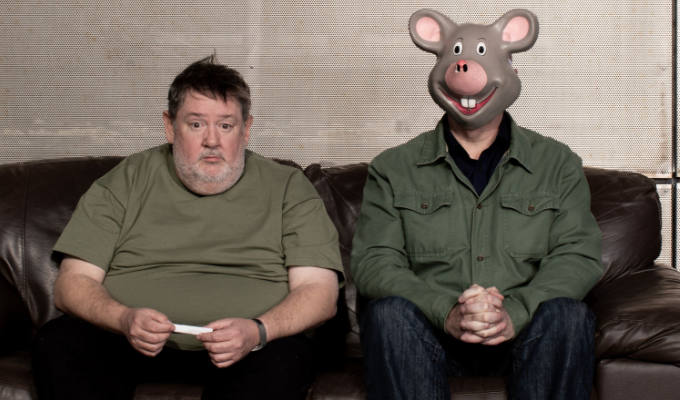Second time lucky
Jorik Mol on why Fringe audiences love reprised shows
There has been a lot of speculation about audiences at this year's Fringe and the reasons why a lot of shows are embarrassingly under-attended. For some reason, be it the weather, the Olympics, the recession, the inevitable crash of the performance art industry (it's coming people, hide underneath your table and crouch for your life), the fact that the Fringe has become too big for its own good, as the venerable Richard Herring posited, or any other vaguely probable reason that has been touted around by scared venue staff, petrified comedians or theatre groups so enraptured with fear that they're constantly just one gin and tonic away from condensating into thin air due to sheer stress.
We have to be serious about this. Yes, maybe the Fringe has had its day and maybe the comedy boom that Michael McIntyre initiated is over, It made the careers of a lucky few rise sky high, leaving a squeezed middle of people who'll never be able to work full-time as comics and a huge underclass of idiots and wannabes (myself included) who will just bash their skulls against the glass ceiling until it breaks apart and cuts them. Painfully. In the face.
But let's look at the other side. Which shows ARE actually doing well? Doing the FringeReview New Talent podcast has shown me different sides of the coin. Some people, due to a plethora of reasons that have nothing to do with talent or quality, are doing incredibly well. All others fall by the wayside for no other reason than for instance having a rubbish timeslot that doesn't fit their show.
This year, apart from the podcast and the occasional open spot, I'm also teching a show called A Five Step Guide to Being German at the Counting House by Paco Erhard. When people tell me that they're really struggling to get an audience in, I almost (almost) envy them, when carousing 150-180 people into an auditorium only meant for a 100 max. This, tiring as it may be for techies like me; is impressive. Why is it that Paco is doing so well apart from his obvious talent and the great concept of his show?
My hypothesis is this: reprising a show is a very clever thing to do. Especially if you're in a free venue. Last year, Paco did a show under the same title, with the same concept. Now he's packing out the Counting House Ballroom. My friend Aidan Goatley, whose show is called Ten Films With My Dad; is also getting great audiences and he's earning his investment back through the bucket at the end. And more.
Why are these shows so successful? First of all, they are free. So there isn't any faffing about with ticket sales and queing for five hours only to find that The Boy With Tape On His Face sold out in April. Secondly, and most importantly, they are reprisals. The hardcore Edinburgh audience, who go to every festival year after year, will have some form of visual memory of Paco's or Aidan's face at the back of their minds, be it from flyers, posters or reviews.
What this means is that if a show is good enough to make it through to a second year, improved due to touring and editing the audience feel like they're in a safe pair of hands. In Paco's case, the international element also drags all foreigners in (i.e. all of the Germans currently in Edinburgh). In Aidan's case, the venue is absolutely lovely and his show is on at exactly the time a heartwarming show such as his should be on.
Audience want to be safe in the knowlege they are in a show that works and has been shown to work. They don't want to feel like they're taking a punt at something that may well be rubbish. They want to be sure of the quality of the show before they step into the venue.
I concede that this may work counterproductively to what the Fringe should be about but audiences, wrong as they might be, have no interest in what fringe festivals should or should not be about. They want to be certain that they'll have a good time. If free, even better.
- Jorik Mol is doing open spots at this year’s Fringe and presents the FringeReview New Talent Podcast.
Published: 17 Aug 2012






